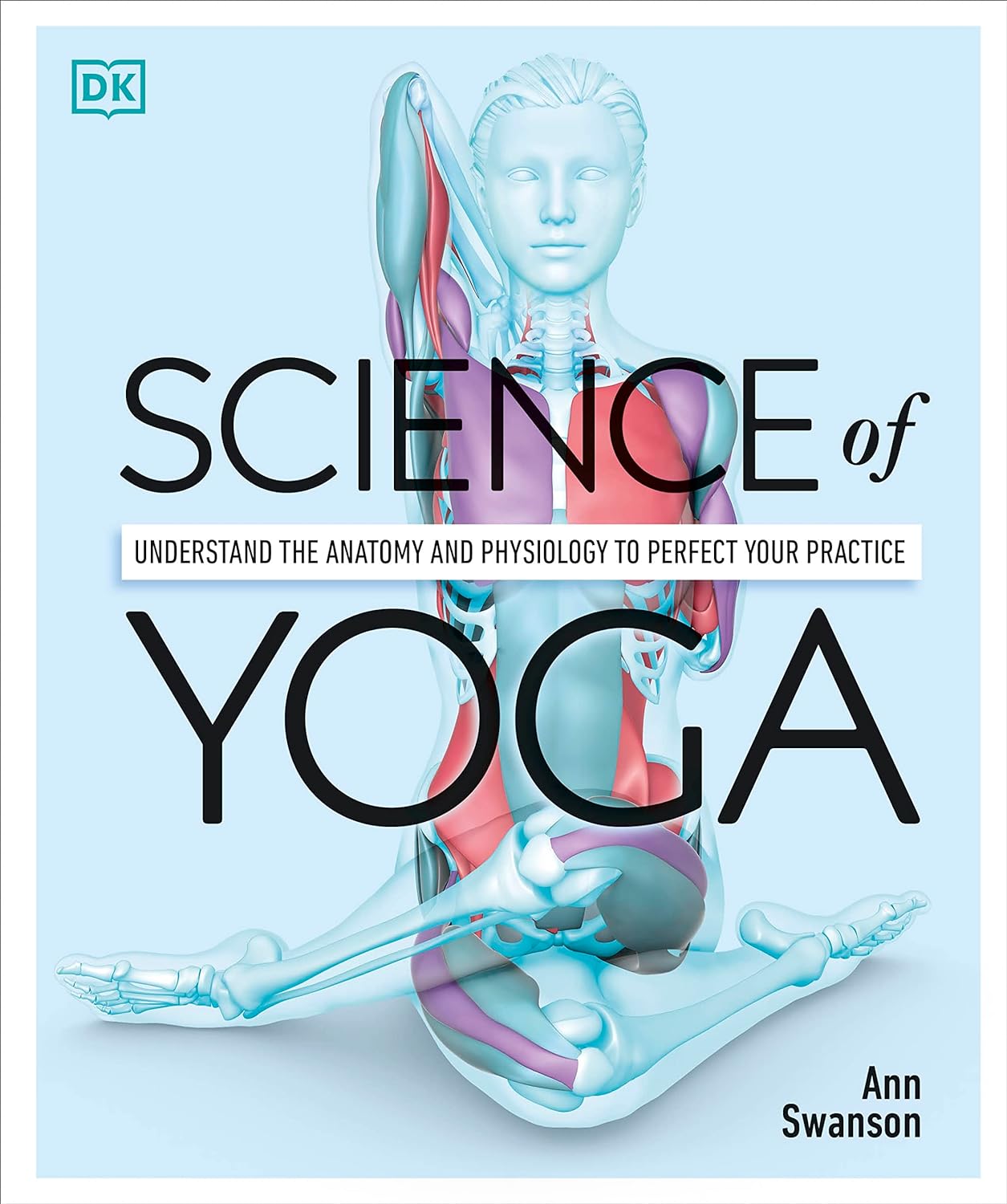Yoga’s Impact: Body, Mind, and Spirit

Before diving in, please note: This post is for informational purposes only. If you’d like to know more about how we approach topics, feel free to check out our friendly Disclaimer Page.
Hey there, amazing readers! 🖐️ Just a quick note: yes, we know there are a lot of ads here. Trust us, we get it—it’s not the prettiest look, but they help us keep this blog alive and kicking. Those pesky little ads cover the costs of all the behind-the-scenes magic, from hosting and tech stuff to creating content we hope you’ll love.
We’re committed to delivering quality posts, and your support (even just sticking around despite the ads) means everything to us. So, bear with us, and thanks for helping us keep the good vibes rolling. Now, on to the fun stuff! 😉
TRANSLATE BUTTON AT THE END OF THE ARTICLE
A Quick Overview
Yoga is a holistic practice that has been around for centuries, originating in ancient India.
It encompasses physical postures, breathing techniques, meditation, and deep relaxation practices.
The impact of yoga goes beyond just the physical body, extending to mental and emotional well-being, as well as spiritual growth.
This ancient practice has gained popularity worldwide due to its numerous benefits for overall health and wellness.
In this article, we will delve into how yoga impacts the body, mind, and spirit, exploring its various benefits in each realm.
Physical Benefits of Yoga
Improved Flexibility: One of the most well-known benefits of yoga is its ability to enhance flexibility.
Through a series of stretching poses, yoga helps lengthen muscles and increase range of motion in joints.
Strengthened Muscles: Yoga not only improves flexibility but also helps strengthen muscles.
Various poses engage different muscle groups, promoting overall strength and toning.
Better Posture: By practicing yoga regularly, individuals can improve their posture as the poses require proper alignment of the body.
This can help reduce back and neck pain associated with poor posture.
Enhanced Balance: Many yoga poses focus on balance, requiring practitioners to stabilize their bodies.
This can improve balance and coordination over time, reducing the risk of falls.
Increased Endurance: Yoga is not just about holding poses but also about controlled breathing.
This controlled breathing helps build endurance, allowing individuals to stay longer in poses and activities.
Weight Management: Regular practice of yoga can aid in weight management by increasing metabolism and promoting a healthy lifestyle.
Certain types of yoga, such as power yoga, can be particularly effective for burning calories.
Boosted Immune System: The relaxation and stress-reducing benefits of yoga can also boost the immune system.
Lower stress levels can lead to better overall health and a stronger immune response.
Improved Circulation: The various twisting and stretching movements in yoga can help improve blood circulation throughout the body, promoting better oxygenation of cells and organs.
Pain Relief: Many individuals experience relief from chronic pain conditions such as arthritis, back pain, and migraines through the practice of yoga.
The gentle stretching and strengthening can alleviate discomfort.
Enhanced Respiratory Function: Yoga emphasizes deep breathing techniques that can improve lung capacity and respiratory function.
This can be beneficial for individuals with respiratory conditions like asthma.
Mental Benefits of Yoga
Stress Reduction: One of the most significant mental benefits of yoga is its ability to reduce stress.
The practice encourages mindfulness and relaxation, helping individuals manage stress and anxiety more effectively.
Increased Focus: Through the practice of concentration and meditation, yoga can improve focus and attention span.
This can be beneficial for productivity and cognitive function.
Mood Enhancement: Yoga has been shown to boost mood and promote feelings of well-being.
The release of endorphins during physical activity can contribute to a sense of happiness and contentment.
Reduced Symptoms of Depression: Studies have indicated that yoga may help reduce symptoms of depression.
The combination of physical movement, breathing exercises, and mindfulness can have a positive impact on mental health.
Anxiety Relief: Regular practice of yoga can help individuals cope with anxiety and panic attacks.
The calming effects of yoga on the nervous system can reduce feelings of anxiety and promote relaxation.
Improved Sleep: Many individuals find that practicing yoga before bed can improve the quality of their sleep.
The relaxation techniques and breathing exercises can calm the mind and prepare the body for restful sleep.
Enhanced Memory: Yoga has been linked to improved memory and cognitive function.
The combination of physical movement, breathwork, and meditation can enhance brain health and memory retention.
Stress Management: Learning to manage stress through yoga can have long-term benefits for mental health.
The coping mechanisms and relaxation techniques can be applied in various stressful situations.
Emotional Regulation: Yoga teaches individuals to be present in the moment and observe their emotions without judgment.
This can help regulate emotions and prevent impulsive reactions.
Mindfulness Practice: Yoga encourages mindfulness, which involves being fully present in the moment.
This practice can enhance self-awareness and promote a deeper connection with oneself.
Emotional Benefits of Yoga
Emotional Release: Yoga provides a safe space for individuals to release pent-up emotions through movement and breathwork.
This can lead to emotional catharsis and a sense of relief.
Improved Self-Esteem: Engaging in a regular yoga practice can boost self-esteem and self-confidence.
As individuals progress in their practice and notice improvements, they may feel more positive about themselves.
Increased Empathy: Yoga cultivates a sense of compassion and empathy towards oneself and others.
The practice of non-judgment and self-compassion can lead to more harmonious relationships.
Stress Reduction: By reducing stress levels, yoga can help individuals manage their emotions more effectively.
This can lead to a greater sense of emotional stability and balance.
Self-Reflection: Yoga encourages self-reflection and introspection, allowing individuals to explore their thoughts and emotions in a conscious way.
This can lead to greater self-awareness and personal growth.
Emotional Resilience: Regular practice of yoga can build emotional resilience, enabling individuals to bounce back from difficult situations and setbacks more easily.
Connection to Others: Yoga classes provide an opportunity for social interaction and connection with like-minded individuals.
This sense of community and support can positively impact emotional well-being.
Release of Tension: The physical movements and breathing techniques in yoga can release tension held in the body, promoting emotional release and relaxation.
Coping Mechanisms: Yoga teaches individuals healthy coping mechanisms for dealing with stress, anxiety, and other emotional challenges.
These tools can be applied in everyday life.
Emotional Balance: Through the practice of yoga, individuals can achieve a greater sense of emotional balance and harmony.
This can lead to more stable moods and a sense of inner peace.
Spiritual Benefits of Yoga
Connection to Higher Self: Yoga is often associated with spiritual growth and self-discovery.
Through the practice of yoga, individuals can connect with their higher self and cultivate a sense of inner peace.
Enhanced Intuition: Yoga can help individuals tap into their intuition and inner wisdom.
By quieting the mind and cultivating awareness, individuals may access deeper insights and guidance.
Transcendence of Ego: Yoga teaches individuals to transcend the ego and connect with their true essence.
This can lead to a greater sense of authenticity and alignment with one’s higher purpose.
Alignment with Universal Energy: Many yoga practitioners believe that through the practice of yoga, they can align with universal energy and connect with something greater than themselves.
Mind-Body-Spirit Connection: Yoga emphasizes the unity of mind, body, and spirit.
By integrating these aspects of the self, individuals can achieve a sense of wholeness and balance.
Cultivation of Gratitude: Yoga encourages individuals to cultivate gratitude for the present moment and all that it brings.
This practice of gratitude can lead to a deeper appreciation for life.
Connection to Nature: Many yoga practices incorporate elements of nature, such as outdoor classes or eco-conscious principles.
This connection to nature can foster a sense of spiritual connection with the earth.
Inner Peace: Through the practice of yoga, individuals can achieve a state of inner peace and tranquility.
This sense of peace extends beyond the physical body and can permeate all aspects of life.
Exploration of Beliefs: Yoga provides a space for individuals to explore their beliefs and values, leading to a deeper understanding of themselves and their place in the world.
Alignment with Higher Purpose: For many practitioners, yoga is a path towards alignment with their higher purpose or dharma.
By connecting with their true essence, individuals can live a more meaningful and purposeful life.
Improving Flexibility through Yoga
Yoga involves a series of stretching poses and movements that target different muscle groups.
These poses help lengthen muscles, increase range of motion in joints, and improve overall flexibility.
Regular practice of yoga can lead to gradual improvements in flexibility over time.
Flexibility is essential for maintaining joint health and preventing injuries.
Improved flexibility can also enhance athletic performance and overall functional movement.
Yoga poses like downward dog, forward folds, and spinal twists are particularly effective for increasing flexibility.
Flexibility is not just limited to the physical body but can also improve mental and emotional flexibility.
Individuals with tight muscles or limited mobility can benefit greatly from a consistent yoga practice.
Flexibility gained through yoga can translate into everyday activities and improve quality of life.
Yoga is a gentle and effective way to improve flexibility for individuals of all ages and fitness levels.
Strengthening Muscles with Yoga
Yoga involves holding various poses that engage different muscle groups.
These poses help strengthen muscles throughout the body, promoting overall strength and toning.
Yoga can be particularly effective for targeting core muscles, which are essential for stability and posture.
Strength-building poses in yoga include plank, warrior series, and chair pose.
The slow and controlled movements in yoga help build muscular endurance over time.
Yoga can be a low-impact way to build strength without putting excess strain on joints.
Regular practice of yoga can lead to increased muscle tone and definition.
Strengthening muscles through yoga can improve posture and reduce the risk of injuries.
Individuals looking to build strength without traditional weightlifting may benefit from a yoga practice.
Yoga provides a holistic approach to strength training, incorporating flexibility and balance alongside muscle building.
Managing Stress with Yoga
Yoga is known for its stress-reducing benefits, helping individuals manage daily pressures and anxiety.
The practice of yoga encourages mindfulness and relaxation, which can alleviate stress and promote a sense of calm.
Deep breathing techniques in yoga help activate the parasympathetic nervous system, reducing the body’s stress response.
Regular practice of yoga can lower cortisol levels, the hormone associated with stress.
Stress management through yoga can improve overall well-being and quality of life.
Various yoga poses and sequences are designed to release tension held in the body, promoting relaxation.
Yoga can provide individuals with tools to cope with stress in a healthy and effective way.
The meditative aspect of yoga allows practitioners to focus on the present moment, reducing worries about the past or future.
Yoga can be a valuable tool for individuals navigating high-stress environments or situations.
By incorporating yoga into their routine, individuals can develop long-term strategies for managing stress and promoting mental health.
Boosting Mental Clarity through Yoga
Yoga practices emphasize the connection between mind and body, promoting mental clarity and focus.
Through concentration and meditation techniques, yoga can improve cognitive function and mental acuity.
The mindful awareness cultivated in yoga can enhance memory retention and information processing.
Yoga encourages individuals to be present in the moment, reducing mental distractions and enhancing clarity.
The controlled breathing exercises in yoga can help calm the mind and improve mental focus.
Yoga can be a beneficial practice for individuals looking to improve decision-making and problem-solving skills.
Regular yoga practice can sharpen mental clarity and boost overall cognitive function.
Individuals may experience increased mental alertness and productivity through a consistent yoga routine.
The meditative aspects of yoga provide a mental reset, allowing individuals to approach tasks with renewed focus.
Yoga can be a valuable tool for enhancing mental clarity and maintaining mental well-being.
Enhancing Emotional Well-being with Yoga
Yoga offers a safe space for individuals to explore and process their emotions in a supportive environment.
The practice of yoga can promote emotional awareness and regulation, helping individuals cope with challenging feelings.
Yoga encourages individuals to be present with their emotions without judgment, fostering self-compassion and empathy.
The release of endorphins during physical activity in yoga can enhance mood and emotional well-being.
Regular practice of yoga can lead to a greater sense of emotional balance and stability.
Yoga poses and sequences can help release tension held in the body, promoting emotional release and relaxation.
The connection between breath and movement in yoga can help individuals process and release emotional energy.
Yoga provides individuals with tools to manage anxiety, depression, and other emotional challenges.
The practice of yoga can cultivate a sense of gratitude and positivity, enhancing emotional well-being.
By integrating mind, body, and spirit, yoga promotes a holistic approach to emotional health and well-being.
Connecting with Inner Self through Yoga
Yoga is a practice that encourages individuals to connect with their inner self and cultivate self-awareness.
Through movement, breathwork, and meditation, individuals can explore their inner thoughts and emotions.
Yoga provides a space for self-reflection and introspection, allowing individuals to delve deep into their inner world.
The practice of yoga teaches individuals to be present in the moment and observe their thoughts and feelings without judgment.
By connecting with their inner self, individuals can develop a deeper understanding of their values, beliefs, and desires.
Yoga can help individuals uncover patterns of behavior and thought that may be holding them back from personal growth.
The mindfulness cultivated in yoga allows individuals to listen to their intuition and inner wisdom.
Yoga encourages individuals to align with their true essence and live authentically.
Through the practice of yoga, individuals can find peace, clarity, and purpose within themselves.
Connecting with the inner self through yoga can lead to personal transformation and spiritual growth.
Conclusion
In conclusion, the impact of yoga on the body, mind, and spirit is profound and multifaceted.
From improving flexibility and strength to reducing stress and enhancing mental clarity, yoga offers a holistic approach to health and well-being.
The emotional benefits of yoga, such as increased self-awareness and emotional regulation, can lead to greater emotional balance and stability.
Additionally, the spiritual aspects of yoga, including connection to the higher self and alignment with universal energy, can foster a sense of inner peace and purpose.
By incorporating yoga into a regular routine, individuals can experience a transformative journey towards improved overall health and wellness.
Embracing the practice of yoga can lead to a more harmonious integration of mind, body, and spirit, ultimately promoting a more balanced and fulfilling life.

The Enlightenment Journey is a remarkable collection of writings authored by a distinguished group of experts in the fields of spirituality, new age, and esoteric knowledge.
This anthology features a diverse assembly of well-experienced authors who bring their profound insights and credible perspectives to the forefront.
Each contributor possesses a wealth of knowledge and wisdom, making them authorities in their respective domains.
Together, they offer readers a transformative journey into the realms of spiritual growth, self-discovery, and esoteric enlightenment.
The Enlightenment Journey is a testament to the collective expertise of these luminaries, providing readers with a rich tapestry of ideas and information to illuminate their spiritual path.
Our Diverse Expertise 🌟
While our primary focus is on spirituality and esotericism, we are equally passionate about exploring a wide range of other topics and niches 🌍📚. Our experienced team is dedicated to delivering high-quality, informative content across various subjects ✨.
To ensure we provide the most accurate and valuable insights, we collaborate with trusted experts in their respective domains 🧑🏫👩🏫. This allows us to offer well-rounded perspectives and knowledge to our readers.
Our blog originally focused on spirituality and metaphysics, but we’ve since expanded to cover a wide range of niches. Don’t worry—we continue to publish a lot of articles on spirituality! Frequently visit our blog to explore our diverse content and stay tuned for more insightful reads.





